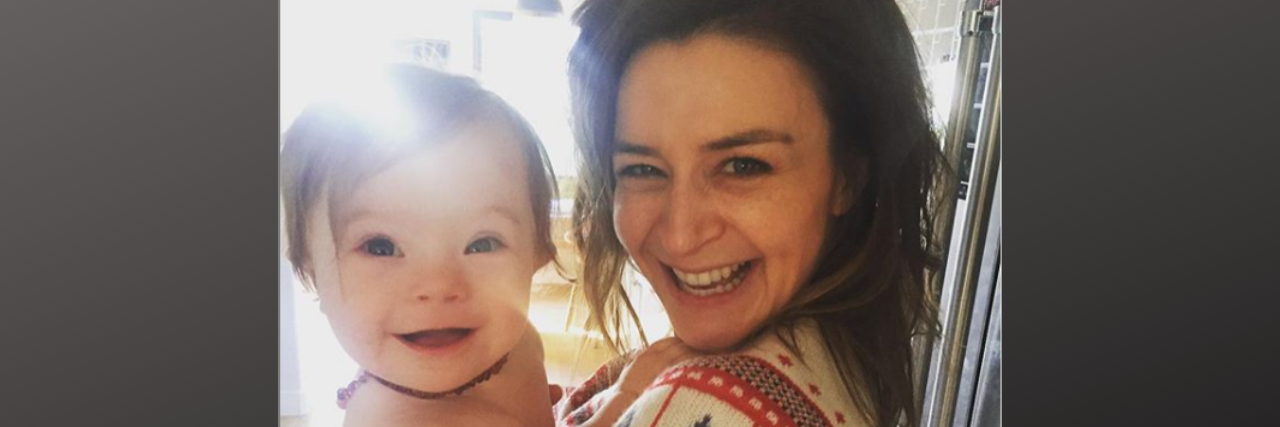Actress Caterina Scorsone, best known for her recurring role as Amelia Shepherd on ABC’s hit show “Grey’s Anatomy,” opened up about how having a child with Down syndrome redefined her experience of motherhood on the March 28 episode of the “Motherly Podcast.”
Scorsone is a mother of two — Eliza, who is 6 years old, and Paloma (Pippa), who is 2 years old and has Down syndrome.
During the interview, Scorsone said her idea of motherhood was based on the belief that she had to equip her children to compete socially, educationally, physically or economically. When Pippa was born, her concept of motherhood shifted in a profound way. In the beginning, Pippa’s Down syndrome diagnosis sent Scorsone into what she called a “tailspin,” feeling unsure what her new role as a mother was going to be. “If my job is not to equip her to compete, then what is my job as a mother?” she said.
Scorsone said these feelings stemmed from not knowing what her child’s abilities would be. She then realized her job as a mother meant two things. “I’m supposed to keep her safe and I am supposed to make her feel loved,” Scorsone said.
This realization also helped her realize the way she parented her first child, Eliza, had been “off.” Scorsone said:
I saw how I was loving my first daughter for her qualities… but all of those things were external qualities… It forced me to see I was loving everybody, including myself, for the wrong reason. I was loving people for their external qualities and not for their essence.
Even before Pippa was born, Scorsone and her husband, musician Rob Giles, often talked about Down syndrome. Scorsone shared that for some reason, since high school, Giles felt he would have a child with Down syndrome. In their conversations, both Scorsone and Giles saw the beauty in diversity. Philosophically, Scorsone embraced that beauty. However, when Pippa was born, she said she felt “out of my depth, scared, ill-equipped, isolated,” because there was so much misinformation.
Scorsone pointed out that when a child is diagnosed with Down syndrome, parents are given information that highlights “every single thing that could go wrong with your kid.” She believes that a parent’s early experience with their child’s diagnosis is informed by the information presented, which in her case was not positive.
For Scorsone, the book, “Expecting Adam” by Martha Beck helped change her perspective. She said the book allowed her to relax and be curious and open to her new path as well as embrace it. “One in 700 people get to experience this, and I am one of them,” she said.
When Scorsone looks at Pippa and acknowledges her differences, she affirms that “her chromosomes are unfolding exactly how they are supposed to.” While Pippa may be developing slower, she is still developing.
Scorsone’s is also a firm believer in connecting with other moms to make sense of the new path. “The moms in the Down syndrome community are a magic love army,” she said.
Now that she is in a position to “pay it forward,” Scorsone said when she meets with new moms dealing with a diagnosis, she gives them space to feel all of their feelings. Parents have to grieve a perception that has been fed to them culturally throughout their lives. “You really have to break down that whole world view, and that is painful,” she said.
Once parents have had a chance to go through the process, and when they are ready for it, Scorsone said you can tell them about all the exciting things.”That might sound mysterious… at first,” she said, but now she gets where parents get their wisdom from. “Here I am, this is the joy that they were talking about,” she said.

